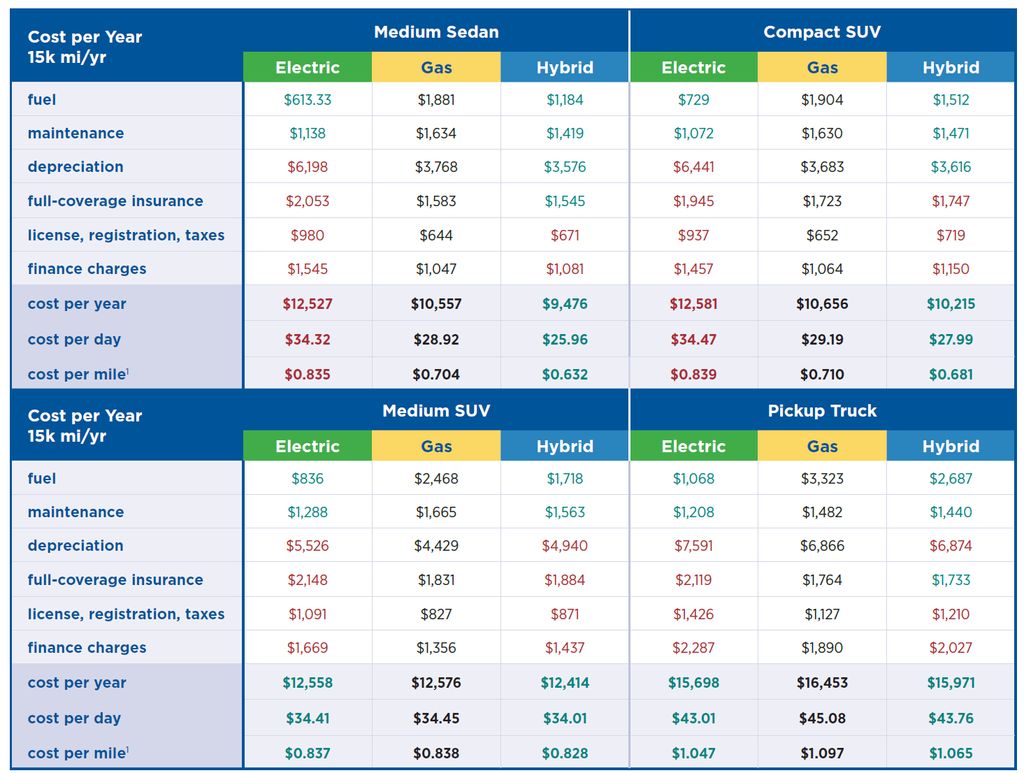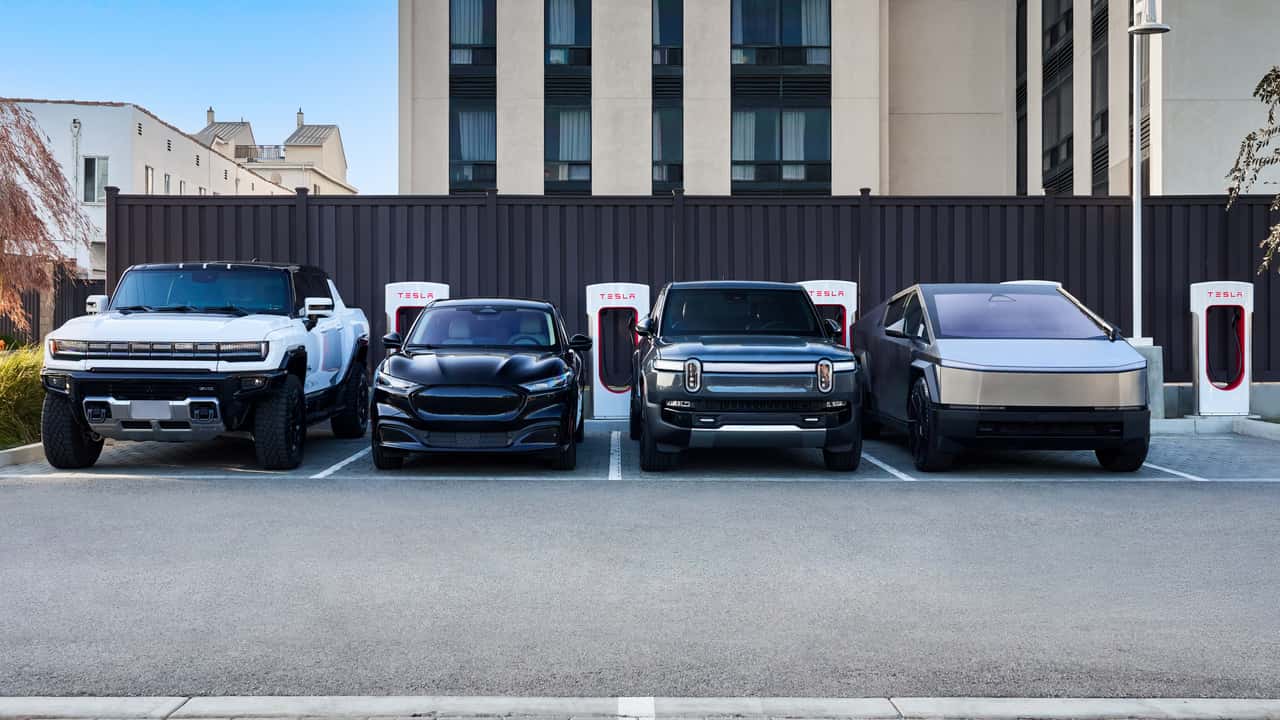- A new study from AAA reveals EVs have the lowest fuel and maintenance costs in the industry.
- At the same time, however, depreciation and insurance costs are among the highest.
Electric vehicles have the lowest fuel and maintenance costs in the United States compared to hybrid and gasoline vehicles, according to the AAA’s latest “Your Driving Costs” study. But while this is common knowledge among EV owners, especially those who have a few years of experience, AAA throws a curveball and says that all that advantage could be offset by the high depreciation experienced by EVs, as well as the higher full-coverage insurance.
That said, not all vehicle categories fall under this shadow, with bigger EVs keeping their position as the most affordable vehicles to own on a cost-per-year basis. Before I dive into the details, it’s worth noting that AAA’s study looked at the best-selling models in each category–11 in the case of EVs and hybrids–and noted the average costs for fuel, maintenance, depreciation, full-coverage insurance, license and registration fees and finance charges. Furthermore, the information below is relative to a yearly driving distance of 15,000 miles and a total ownership period of five years or 75,000 miles. For EVs, an average electricity price of 15.9 cents/kilowatt-hour was taken into account as the fuel price.
With all these variables in mind, the average operating cost for the whole industry, according to the AAA study, is $12,297 per year, $33.69 per day or $0.8198 per mile. In the case of EVs in general, the study revealed a yearly average operating cost of $12,704.
Hybrids came out at $9,910, mid-size gas pickups were at $12,366 and half-ton crew-cab gas pickups topped the chart with the highest yearly operating cost–$16,453 when driving 15,000 miles per year.
According to the AAA, the bigger the vehicle, the lower the average ownership costs for EVs. So, in the case of a medium sedan, the study revealed that going electric will actually be more expensive than a hybrid or even gas model, with a yearly cost of $12,527. The gasoline alternative is $2,000 cheaper per year, while the hybrid is about $3,000 less.

It’s the same story with compact SUVs, but when entering the medium SUV segment, things start to smooth out, with similar yearly operating costs across the board. In the case of pickups, EVs finally come up on top as the least expensive vehicles to own–$15,698 per year compared to $15,971 for hybrids and $16,453 for gas models.
That’s not a huge difference, but here’s the thing: these are average numbers. Depending on where you live, you might experience higher or lower costs with your EV because electricity and gasoline might cost more or less. In some places, energy prices might be much lower than gas at the pump, taking down the yearly cost with them. In other places where energy costs more, a hybrid or plug-in hybrid (as long as you plug it in) might make more sense.
Furthermore, some current or future EV owners might have photovoltaic panels installed at home, which brings down the fuel cost significantly–an advantage that can hardly be applied to gas or hybrid cars.
As always, though, it’s good to do your own research before signing a lease contract or emptying your savings account for a new car, irrespective of fuel type.
Electric vehicles (EVs) have been gaining popularity in recent years due to their environmentally-friendly nature and cost-saving benefits. According to a recent study by AAA, EVs have the lowest fuel and maintenance costs compared to gasoline-powered vehicles, but they suffer from high depreciation rates.
The study found that the average cost to drive an EV is significantly lower than a gasoline-powered vehicle. In fact, EVs can save drivers up to $800 per year in fuel costs alone. Additionally, maintenance costs for EVs are lower because they have fewer moving parts and require less regular maintenance compared to traditional vehicles.
However, despite these cost-saving benefits, EVs suffer from high depreciation rates. The study found that EVs depreciate at a much faster rate than gasoline-powered vehicles, which can result in higher long-term costs for owners. This is due in part to the rapid advancements in EV technology, leading to newer models with better performance and longer ranges being released on a regular basis.
Despite the challenges of depreciation, the overall cost savings and environmental benefits of owning an EV still make them a viable option for many consumers. As technology continues to improve and infrastructure for EVs expands, the benefits of owning an EV will only continue to grow.
In conclusion, while EVs may suffer from high depreciation rates, their low fuel and maintenance costs make them an attractive option for environmentally-conscious consumers. With ongoing advancements in technology and infrastructure, the future looks promising for EVs as a sustainable and cost-effective mode of transportation.

